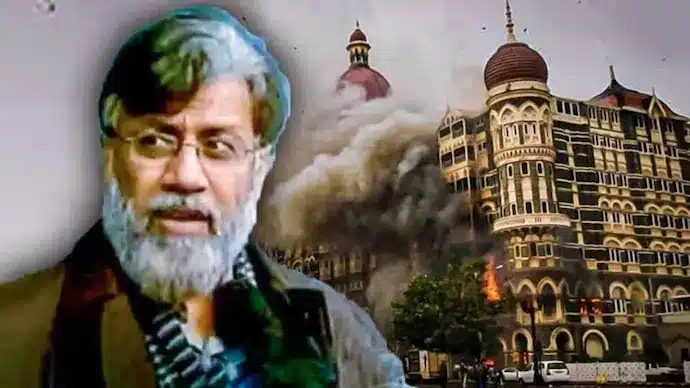Pakistani Businessman Extradited for Mumbai Attacks

Tahawwur Rana, a Pakistani-born businessman, has been extradited from the United States to India, where he is wanted for his alleged involvement in the 2008 Mumbai terror attacks. The National Investigation Agency of India confirmed his arrival in Delhi on Thursday. Although a US court previously cleared him of direct involvement in the attacks, he was convicted for supporting a militant group linked to the incident.
Extradition Process and Background
Tahawwur Rana, a 64-year-old Canadian citizen, was sentenced to 14 years in prison by a US court in 2013 for providing support to the militant group Lashkar-e-Taiba (LeT), which was responsible for the Mumbai attacks that killed 166 people. He was released in 2020 on health grounds but was re-arrested later that year following India’s extradition request. The US court approved his extradition in 2023, but Rana remained in custody until receiving final approval from the US government.
In February, the extradition was greenlit after a meeting between then-President Donald Trump and Indian Prime Minister Narendra Modi. Following this, the US Supreme Court rejected Rana’s appeals against the extradition decision. The extradition was conducted under the India-US Extradition Treaty, which was signed in 1997, facilitating the transfer of fugitives between the two nations.
Who is Tahawwur Rana?
Born and raised in Pakistan, Rana initially pursued a career in medicine and served in the Pakistani army’s medical corps. He and his wife became Canadian citizens in 2001 and later relocated to Chicago, where he operated various businesses, including an immigration and travel agency. Indian authorities allege that Rana conspired with his childhood friend David Coleman Headley to assist LeT in planning the Mumbai attacks.
During the attacks, a group of ten militants targeted multiple locations in Mumbai, including hotels and a Jewish center. Both India and the US have designated LeT as a terrorist organization. US prosecutors claim that Rana allowed Headley to use his Chicago-based immigration firm as a cover to scout locations for the attacks. Headley, who pleaded guilty to his role in the attacks, testified against Rana, asserting that he had connections to LeT and the Pakistani intelligence service, ISI, which Pakistan has denied.
Charges Against Rana in India
In India, Rana and Headley were tried in absentia for their alleged roles in the Mumbai attacks. The National Investigation Agency has charged Rana with criminal conspiracy, waging war against the Indian government, and terrorism. Rana’s defense argued that he was being prosecuted for the same offenses for which he was acquitted in the US, but the court ruled that the Indian charges were distinct.
Rana’s attempts to block his extradition were unsuccessful, as he claimed it would violate US law and the United Nations Convention Against Torture, citing fears of torture in India due to his background. His concerns were dismissed by the US courts. Ujjwal Nikam, a former public prosecutor in the Mumbai case, stated that Rana’s extradition could provide further insights into the involvement of Pakistan’s security apparatus in the attacks.
Observer Voice is the one stop site for National, International news, Sports, Editor’s Choice, Art/culture contents, Quotes and much more. We also cover historical contents. Historical contents includes World History, Indian History, and what happened today. The website also covers Entertainment across the India and World.

